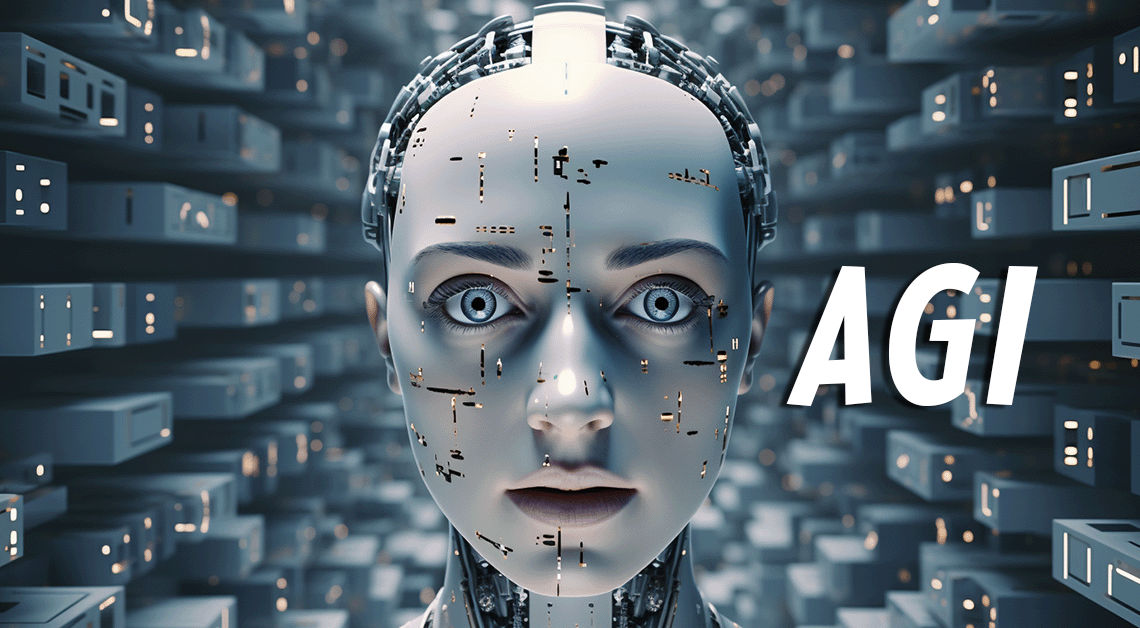Understanding Artificial General Intelligence (AGI): The Future of AI

Hire Arrive
Technology
about 1 year ago

Understanding Artificial General Intelligence (AGI): The Future of AI
Artificial General Intelligence (AGI) is one of the most ambitious goals in the field of artificial intelligence. Unlike the AI systems we use today, which are designed for specific tasks, AGI aims to match human intelligence and versatility. It could revolutionize industries and reshape the way we live. But what exactly is AGI, and how is it different from the AI we already have?
What is AGI?
AGI refers to a type of AI that can understand, learn, and perform any intellectual task that a human can. This includes problem-solving, learning new skills, adapting to different environments, and even thinking abstractly. Unlike narrow AI—which excels in specific tasks like language translation or image recognition—AGI aims to be as flexible and capable as a human mind.
Think of AGI as a system that could write an essay, play chess, diagnose a disease, and learn a new language, all without needing to be specifically programmed for each task. That’s the kind of general intelligence scientists are striving to create.
What Makes AGI Different?
Here are some key traits that set AGI apart:
- Generalization: AGI can take what it learns in one area and apply it to another. For instance, an AGI that learns to play chess could use similar strategies to excel at other strategy-based tasks.
- Adaptability: While current AI needs a lot of data and training for each task, AGI can learn on its own and adapt to new challenges.
- Human-Like Understanding: AGI is expected to reason, think creatively, and approach problems like a human would.
- (Potentially) Self-Aware: Some experts speculate that AGI might eventually achieve some form of consciousness, though this idea is still hotly debated.
Where Could AGI Be Used?
If AGI becomes a reality, it could transform just about every aspect of our lives. Here are a few examples:
- Healthcare: AGI could diagnose diseases, personalize treatments, and even speed up medical research.
- Education: It could provide tailored learning experiences for students anywhere in the world.
- Business: Companies could use AGI to optimize operations, predict trends, and make complex decisions.
- Science: Researchers could solve some of the world’s toughest problems, from climate change to space exploration.
- Everyday Life: Imagine a personal assistant that could handle anything you throw at it, from managing your schedule to fixing your car.
What Makes AGI So Challenging?
Despite its potential, creating AGI is no small feat. Here are some of the biggest challenges:
- Technical Complexity: We still don’t fully understand human intelligence, let alone how to replicate it in a machine.
- Ethical Questions: How do we ensure AGI is used responsibly? Who will be accountable for its decisions?
- Massive Resources Needed: Building AGI will require enormous amounts of data, computing power, and funding.
- Alignment with Human Values: Making sure AGI shares and respects human goals and values is crucial to avoid unintended consequences.
Where Are We Now?
While AGI remains theoretical, researchers are making strides toward it. Organizations like OpenAI and DeepMind are exploring new techniques to bridge the gap between today’s narrow AI and the future of AGI. Progress may be slow, but the possibilities keep pushing scientists forward.
Final Thoughts
AGI could be a game-changer for humanity, offering solutions to problems we can barely imagine tackling today. However, with such transformative potential comes great responsibility. Developing AGI isn’t just about advancing technology—it’s about ensuring it aligns with human values and benefits everyone. As we move closer to this incredible milestone, collaboration between researchers, policymakers, and society will be key to getting it right.